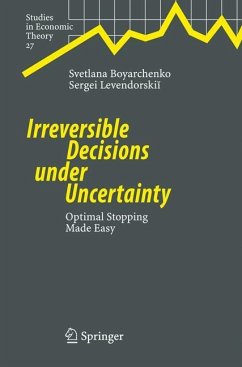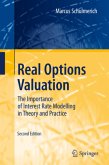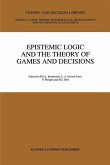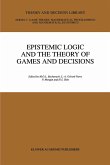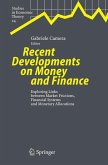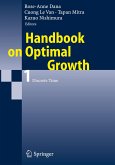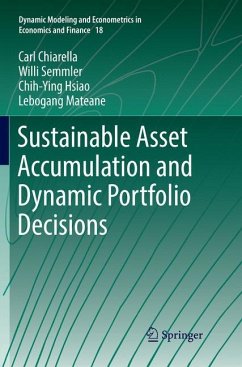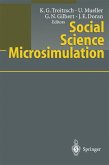In real life, as well as in economic models, individuals often make decisions in an uncertain environment. In many cases, a problem which an optimizing agent faces can be formulated or reformulated as a problem of optimal timing of a certain irreversible or partially reversible action or optimal stopping problem. In this book, the authors present an alternative approach to optimal stopping problems. The basic ideas and techniques of the approach can be explained much simpler than the standard methods in the literature on optimal stopping problems. The monograph will teach the reader to apply the technique to many problems in economics and finance, including new ones. From the technical point of view, the method can be characterized as option pricing via the Wiener-Hopf factorization.
From the reviews: "In this book an alternative approach to optimal stopping problems is presented. Its basic ideas and techniques are demonstrated on a much simpler level ... . Necessary notations and results of the theory of stochastic processes are introduced in a piece meal basis when they are needed. Certainly, the reading of the book is easier for readers ... . The first three parts of the book can be used as an introductory course, and the rest of the book for an advanced course." (Klaus Ehemann, Zentralblatt MATH, Vol. 1131 (9), 2008)

